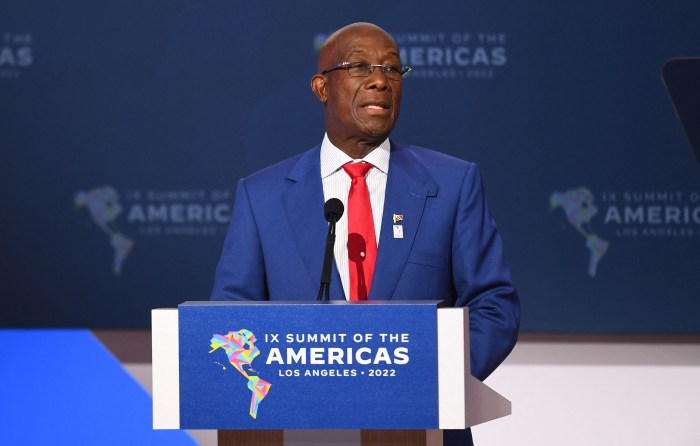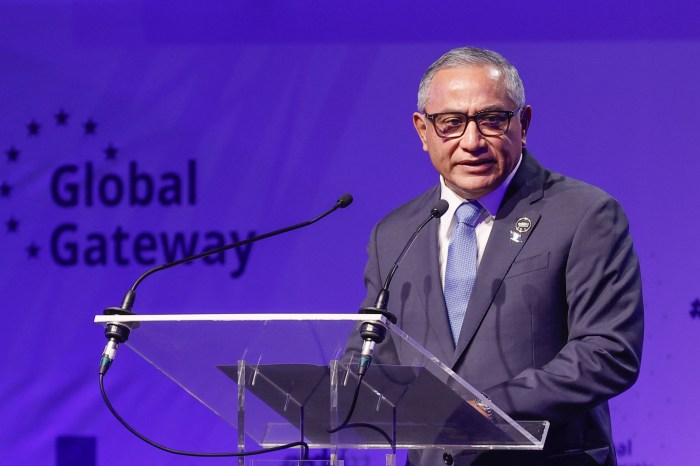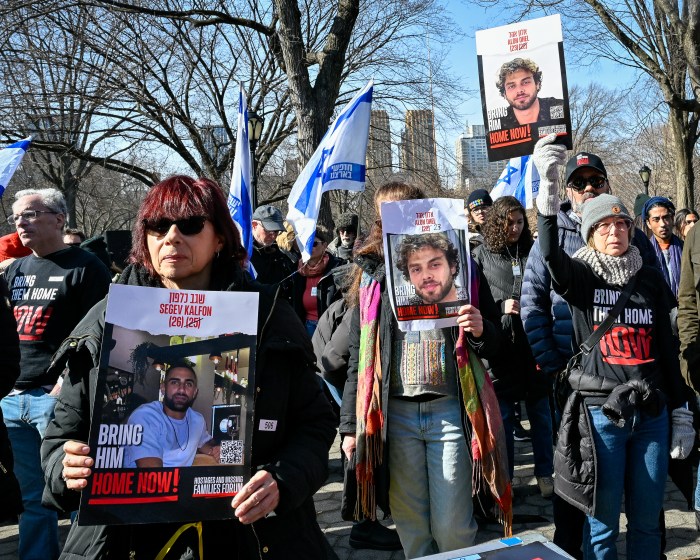Trinidad & Tobago, the twin islands in the Eastern Caribbean gained independence Aug. 31, 1962. Regarded the Caribbean’s main stage for the “Greatest Show On Earth” — the T&T Carnival, revelers maintain a lexicon for super-sized parties that precede the religious Lenten period. Creole words to know during that period are “Fete” and “Lime.”
In T&T, a fete is a party that must include calypso, soca and pan music, dancing and native food. A lime is a casual gathering of friends — to hang out, to pass the time, to chill.
But T&T is more than carnival. There are also many natural resources, including: oil, a bird sanctuary, and a pitch lake no other islands can rival.
Through half a century, T&T can also boast excellence in athletics; whether the sport is football or cricket, the “Black, Red and White” flies high on the Caribbean flagpole of excellence.
Earlier this month, Keshorn Walcott and Olympic athletes representing the second Caribbean nation to win independence from Britain demonstrated that Trinis rule in javelin.
1962 – Trinidad and Tobago leaves the West Indies Federation. Following that historical event, the twin islands gain independence and is led into self-rule by Prime Minister Eric Williams.
1964 – World Steel Band Music Festival debuts.
1967 – Trinidad and Tobago joins the Organization of American States.
1968 – Formal launch of the National Joint Action Committee by members of the Guild of Undergraduates at the St Augustine campus of the University of the West Indies. It is led by Geddes Granger
1969 – The birth of the Black Power Movement emerges following protests against the arrest of West Indian students at Sir George Williams University in Montreal.
1970 – Government declares a state of emergency after violent protests by “Black Power” supporters who demand a solution to unemployment and an end to foreign influence over the economy.
1972 – State of emergency lifted.
1975 – Strikes by workers in the oil, sugar, transport and electricity sectors paralyze the economy.
1976 – Trinidad and Tobago becomes a republic. Former Governor-General Ellis Clarke becomes president and Eric Williams remains prime minister.
That year, Hasley Crawford won the twin island’s first gold in the 100 meter dash at Olympics Games in Montreal, Canada.
1977 – Janelle Commissiong is crowned Miss Universe. She is the first winner of African descent to wear the crown.
1978 – McCartha Linda Sandy-Lewis AKA Calypso Rose is the first female to win the Trinidad Road March competition. Born in Bethel, Tobago, she won the Calypso King competition and for the first time in carnival competitions the title is awarded to a female. Now known as the Calypso Monarch, the title was changed in her honor.
1981 – Eric Williams dies. Tobago’s ANR Robinson assumes leadership. George Chambers becomes prime minister. 1985 – Pope John Paul visits T&T.
1986 – Tobago-based National Alliance for Reconstruction (NAR) headed by Arthur Robinson wins the general election.
1987 – Noor Hassanali becomes president.
1990 – More than 100 Islamist radicals blow up the police headquarters, seize the parliament building in Port of Spain and hold Robinson and other government officials hostage for five days in an abortive coup attempt. They are known as the Jumaat al Muslimeen and described as Muslim extremists. After a long standoff with the police and military, the Jamaat al Muslimeen leader, Yasin Abu Bakr and his followers surrendered to Trinidadian authorities.
1991 – Patrick Manning is elected Prime Minister and Basdeo Panday continues to lead the opposition.
1994 – Trinidad and Tobago Television Company merged with the state-owned radio company, National Broadcasting Service. The new entity was called the International Communications Network.
— Basdeo Panday is elected prime minister. He is the first prime minister of Indo-Trinidadian descent.
1998 – Wendy Fitzwilliam wins Miss Universe. This title is the second for T&T.
2002 – Third general election in three years ends months of political deadlock. Prime Minister Patrick Manning’s ruling People’s National Movement declares victory.
2003 – President Maxwell Richards is sworn in after being elected by MPs in February. State-owned sugar company Caroni shuts down with the loss of more than 8,000 jobs.
2005 – Regional leaders gather to inaugurate the Trinidad-based Caribbean Court of Justice, a final court of appeal intended to replace Britain’s Privy Council. The court hears its first case later that November. At least 10,000 people take part in a protest – named the Death March – against an escalating rate of violent crimes.
2006 – Soca Warriors, Trinidad & Tobago’s football team qualifies for the FIFA World Cup in Germany. The soccer team maintains the record of being the smallest nation –both in size and population — to qualify for a World Cup competition.
2009 – President Barrack Obama visits T&T for Summit of the Americas talks.
2010 – Kamla Persad-Bissesar sworn in as the country’s first female Prime Minister.
Air Jamaica operates under the banner of Caribbean Airlines, T&T’s national airlines.
2011 – Limited state of emergency is declared by President George Maxwell Richards.
2012 – Keshorn Wolcott strikes gold at London Olympics winning the javelin. The nation tallies another three bronze medals during the 30th Olympiad.



























